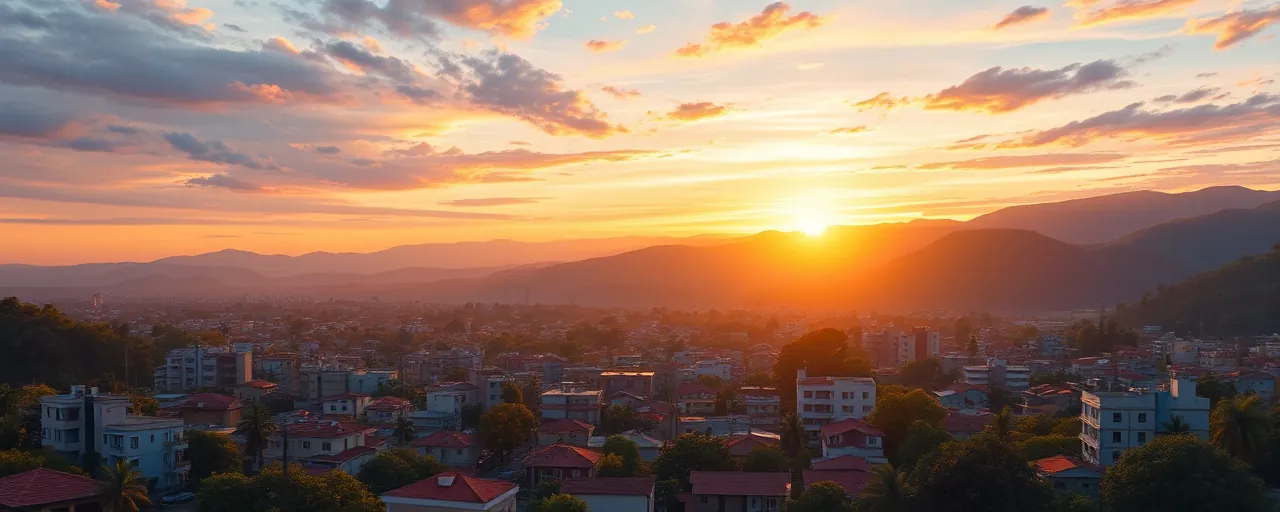A Win for Resolve in Ecuador
Ecuador’s voters sent a clear message on April 13, choosing President Daniel Noboa for another term. This wasn’t just a local election; it reverberated across the Western Hemisphere. Noboa’s victory, rooted in his unrelenting stance against drug cartels and violent crime, aligns Ecuador with an America First vision that prioritizes security and sovereignty. The United States, under President Trump’s leadership, now has a steadfast ally in a region teetering on the edge of chaos, where transnational crime threatens every nation’s stability.
The reelection came out of nowhere for some, given the fierce challenge from Luisa González, who pushed softer policies and leaned on tired promises of job creation over law enforcement. Yet Ecuadorians, battered by a homicide rate that soared to 47 per 100,000 in 2023, didn’t buy it. They backed Noboa’s iron-fisted approach, which has already cut homicides by 18% in 2024 through military deployments and the Security Bloc initiative. This isn’t blind faith in force; it’s trust in results. The United States stands ready to amplify that momentum, forging a partnership that doesn’t just talk about safety but delivers it.
Crushing the Cartels, Together
Noboa’s administration has taken a sledgehammer to drug trafficking, a plague that’s bled into America’s streets. Ecuador, once a quiet neighbor, became a cocaine superhighway for cartels from Mexico, Colombia, and even Albania. In 2024 alone, Noboa’s forces arrested 65,000 suspected criminals and seized record amounts of narcotics. The United States has fueled this fight with $93 million in aid, patrol boats, and a C-130H Hercules aircraft, equipping Ecuador to choke off the drug flow at its ports. This isn’t charity; it’s strategy. Every kilo stopped in Guayaquil is one less poisoning American communities.
Contrast this with the naysayers, often cloaked in human rights rhetoric, who argue militarization goes too far. They point to alleged abuses or the 6,986 murders in 2024, as if inaction would’ve fared better. Their logic crumbles when you see the alternative: cartels running unchecked, prisons turned into gang headquarters, and entire cities held hostage. Noboa’s policies, backed by American intelligence and training, aren’t perfect, but they’re a firewall against collapse. The real abuse is letting criminals dictate the future while preaching restraint.
Stemming the Tide of Illegal Migration
Then there’s the migration crisis, where Ecuador’s chaos spills over our borders. In 2024, 95,000 Ecuadorians fled north, many landing at America’s doorstep, driven by violence and poverty. President Trump’s policies don’t mess around: expedited removals, revived Remain in Mexico protocols, and cooperation with allies like Noboa to repatriate migrants. Ecuador’s willingness to work with us on information sharing and deportation flights shows what a true partner looks like. This isn’t about walls alone; it’s about fixing the root causes, like cartels and corruption, that push people to leave.
Some argue for open borders or endless asylum loopholes, claiming compassion drives their stance. But compassion doesn’t mean ignoring the strain on American cities or the exploitation of migrants by smuggling networks. Those voices conveniently sidestep how Ecuador’s security crackdown, backed by U.S. support, aims to make staying home viable. A stable Ecuador means fewer desperate journeys through the Darién Gap, fewer lives lost, and fewer burdens on American taxpayers. That’s not cruelty; it’s clarity.
A Partnership Built to Last
This election cements a US-Ecuador alliance that’s more than photo ops or press releases. Noboa’s openness to U.S. troops and his push to rewrite laws banning foreign bases signal trust in American leadership. The United States-Ecuador Partnership Act of 2022 laid the groundwork, but Noboa’s taken it further, from joint naval operations to prison reforms that curb gang control. This isn’t blind allegiance; it’s a shared mission to keep our hemisphere from fracturing under crime and instability.
Looking ahead, the stakes couldn’t be higher. Ecuador’s ports, its borders, its very streets are battlegrounds in a war that reaches American soil. Noboa’s victory isn’t a blank check, but it’s a mandate to double down on what works: tough security, targeted aid, and zero tolerance for cartels. The United States has a partner who gets it, one who sees strength, not posturing, as the path forward. Anything less would betray both our nations.
